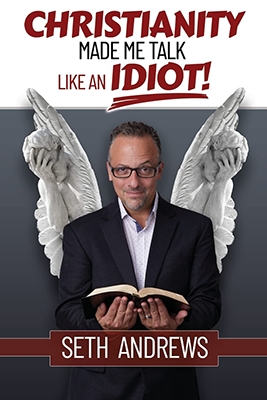Christianity Made Me Talk Like An Idiot
“Christianity Made Me Talk Like an Idiot” is a book by Seth Andrews, a former Christian and now a prominent atheist activist and podcaster. Here’s a summary of the key themes and arguments presented in the book:
Personal Journey: Andrews shares his personal journey of growing up in a devout Christian family, his experiences as a believer, and the process of questioning and eventually rejecting his faith.
Critique of Religious Language: The book critiques the language and rhetoric used within Christianity, arguing that religious beliefs can influence communication styles and contribute to a closed-minded approach to questioning and critical thinking.
Impact of Religious Indoctrination: Andrews discusses how religious indoctrination can shape beliefs, behaviors, and speech patterns, sometimes leading individuals to adopt irrational or dogmatic views without questioning.
Examining Religious Beliefs: Andrews examines various Christian beliefs and doctrines, offering skeptical and critical perspectives on topics such as creationism, miracles, biblical literalism, and the concept of divine authority.
Humor and Satire: Similar to R. G. Ingersoll’s approach, Andrews uses humor, satire, and personal anecdotes to challenge religious orthodoxy and highlight what he perceives as inconsistencies or absurdities in religious teachings.
Promotion of Skepticism and Reason: The book promotes skepticism, critical thinking, and reason as alternatives to faith-based beliefs. Andrews encourages readers to question religious teachings and explore secular perspectives on morality, science, and life’s big questions.
Audience and Impact: “Christianity Made Me Talk Like an Idiot” is aimed at a wide audience, including former believers, skeptics, atheists, and anyone interested in exploring the psychological and cultural impacts of religious belief.
Overall, Seth Andrews’ book provides a personal and critical examination of Christianity, challenging its influence on language, thought, and intellectual freedom. It serves as both a memoir of his journey away from faith and a critique of religious beliefs and practices.

